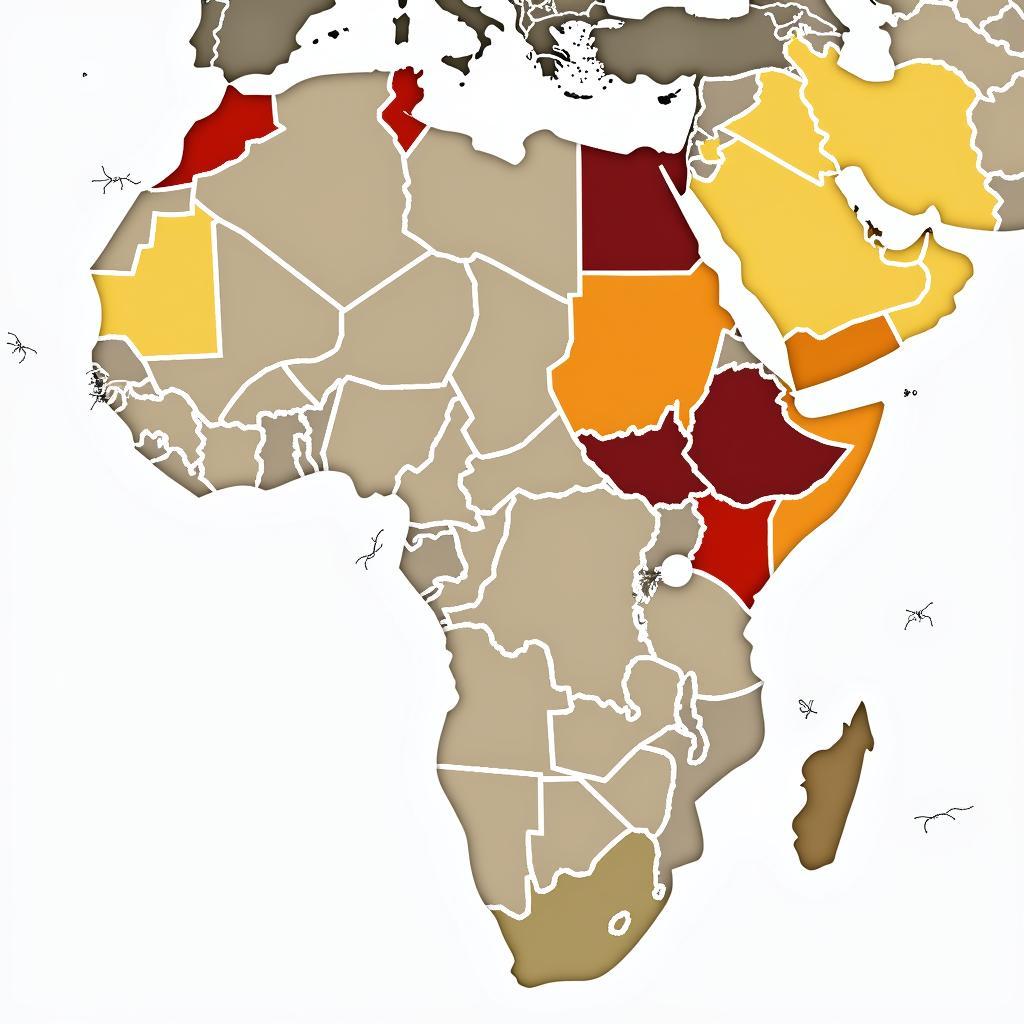African Horse Sickness Synonyms: Understanding the Terminology
African horse sickness (AHS) is a devastating viral disease affecting equids, causing significant economic and emotional losses. Understanding the terminology surrounding AHS is crucial for effective communication and research. This article explores various synonyms, related terms, and the importance of precise language when discussing this disease.
Decoding the Name: African Horse Sickness
AHS derives its name from its primary host (horses) and its geographic origin (Africa). While the name is straightforward, it doesn’t encompass the full spectrum of animals affected. The term “horse sickness” can be misleading, as donkeys and mules are also highly susceptible, often experiencing more severe forms of the disease. Zebras, while carriers, typically display milder symptoms.
African Horse Sickness Synonyms and Related Terms
While “African horse sickness” is the most common term, several synonyms and related terms exist. These include:
- Horse Sickness: This term, while concise, lacks geographic specificity and can be confused with other equine diseases.
- AHS: This widely used abbreviation provides a convenient shorthand for the disease.
- Pestis equorum: This Latin term, meaning “plague of horses,” reflects the historical severity of AHS outbreaks.
- Dikkop: This Afrikaans word, meaning “thick head,” describes the characteristic swelling seen in some affected animals, particularly donkeys.
Understanding these different terms is crucial for navigating scientific literature, veterinary reports, and communication among horse owners and professionals. Using precise language minimizes confusion and ensures accurate information dissemination.
The Importance of Precise Language in AHS Discussions
Precise terminology is essential in all aspects of AHS management, from diagnosis and treatment to research and public awareness campaigns. Misunderstandings due to ambiguous language can hinder effective control measures and lead to misdiagnosis or delayed treatment.
Why Clear Communication Matters
Clear communication is vital for several reasons:
- Accurate Diagnosis: Using precise terminology allows veterinarians to quickly identify and differentiate AHS from other equine diseases with similar symptoms.
- Effective Treatment: Understanding the different forms of AHS (pulmonary, cardiac, and mixed) and their specific manifestations enables targeted treatment strategies.
- Disease Surveillance: Accurate reporting of AHS cases, using standardized terminology, facilitates effective disease surveillance and control efforts.
- Public Awareness: Educating the public about AHS, using clear and accessible language, promotes responsible horse ownership and prevents the spread of the disease.
Regional Variations in Terminology
The terminology used to describe AHS can vary regionally. For instance, “dikkop” is primarily used in Southern Africa, while “horse sickness” might be more common in regions with less AHS prevalence. Being aware of these regional variations helps to interpret information accurately and avoid miscommunication.
Navigating Regional Differences
Understanding the context in which specific terms are used is crucial. When communicating with individuals from different regions, using the most widely accepted term, “African horse sickness,” or its abbreviation “AHS,” ensures clarity.
 African Horse Sickness: Global Distribution
African Horse Sickness: Global Distribution
Conclusion
African horse sickness (AHS) is a complex disease with various synonyms and related terms. Understanding these terms, and the importance of precise language, is crucial for effective communication and management of this devastating equine disease. By using accurate and consistent terminology, we can improve diagnostic accuracy, treatment efficacy, disease surveillance, and public awareness, ultimately minimizing the impact of AHS on equine populations worldwide.
FAQs
- What is the most common synonym for African horse sickness? AHS.
- What does “dikkop” mean? It’s an Afrikaans term meaning “thick head,” describing the swelling seen in some AHS-affected animals.
- Why is precise terminology important when discussing AHS? It ensures accurate diagnosis, treatment, and communication about the disease.
- Is AHS only found in Africa? Historically yes, but outbreaks have occurred in other regions.
- What animals are affected by AHS? Primarily horses, donkeys, and mules, with zebras acting as carriers.
- What are the different forms of AHS? Pulmonary, cardiac, and mixed forms.
- How is AHS transmitted? Through biting midges (Culicoides species).
Need More Information?
For further information or assistance regarding African Horse Sickness, please contact us:
Phone: +255768904061
Email: [email protected]
Address: Mbarali DC Mawindi, Kangaga, Tanzania
We have a 24/7 customer service team ready to assist you.

